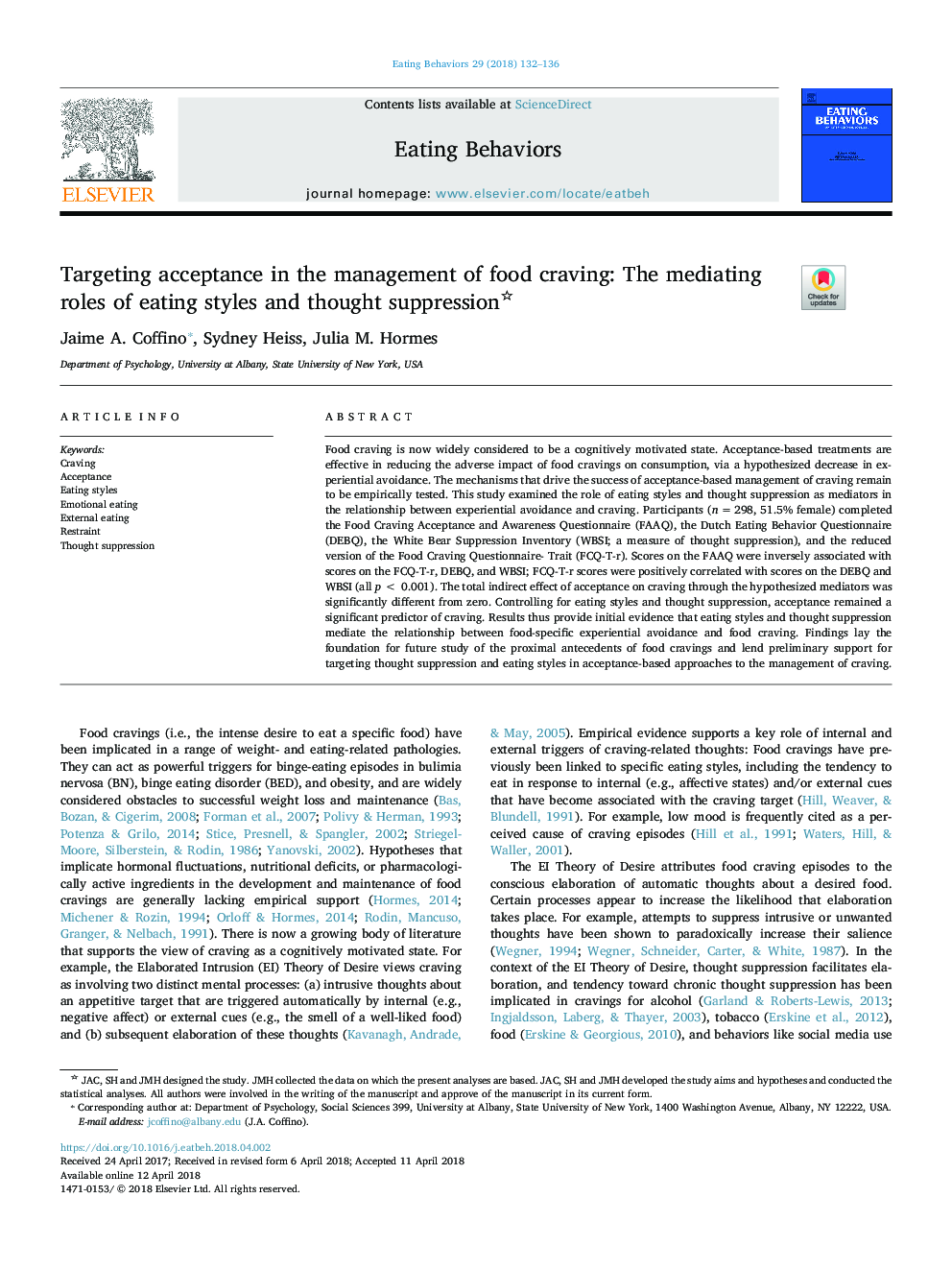| Article ID | Journal | Published Year | Pages | File Type |
|---|---|---|---|---|
| 7264959 | Eating Behaviors | 2018 | 5 Pages |
Abstract
Food craving is now widely considered to be a cognitively motivated state. Acceptance-based treatments are effective in reducing the adverse impact of food cravings on consumption, via a hypothesized decrease in experiential avoidance. The mechanisms that drive the success of acceptance-based management of craving remain to be empirically tested. This study examined the role of eating styles and thought suppression as mediators in the relationship between experiential avoidance and craving. Participants (nâ¯=â¯298, 51.5% female) completed the Food Craving Acceptance and Awareness Questionnaire (FAAQ), the Dutch Eating Behavior Questionnaire (DEBQ), the White Bear Suppression Inventory (WBSI; a measure of thought suppression), and the reduced version of the Food Craving Questionnaire- Trait (FCQ-T-r). Scores on the FAAQ were inversely associated with scores on the FCQ-T-r, DEBQ, and WBSI; FCQ-T-r scores were positively correlated with scores on the DEBQ and WBSI (all pâ¯<â¯0.001). The total indirect effect of acceptance on craving through the hypothesized mediators was significantly different from zero. Controlling for eating styles and thought suppression, acceptance remained a significant predictor of craving. Results thus provide initial evidence that eating styles and thought suppression mediate the relationship between food-specific experiential avoidance and food craving. Findings lay the foundation for future study of the proximal antecedents of food cravings and lend preliminary support for targeting thought suppression and eating styles in acceptance-based approaches to the management of craving.
Related Topics
Life Sciences
Neuroscience
Behavioral Neuroscience
Authors
Jaime A. Coffino, Sydney Heiss, Julia M. Hormes,
